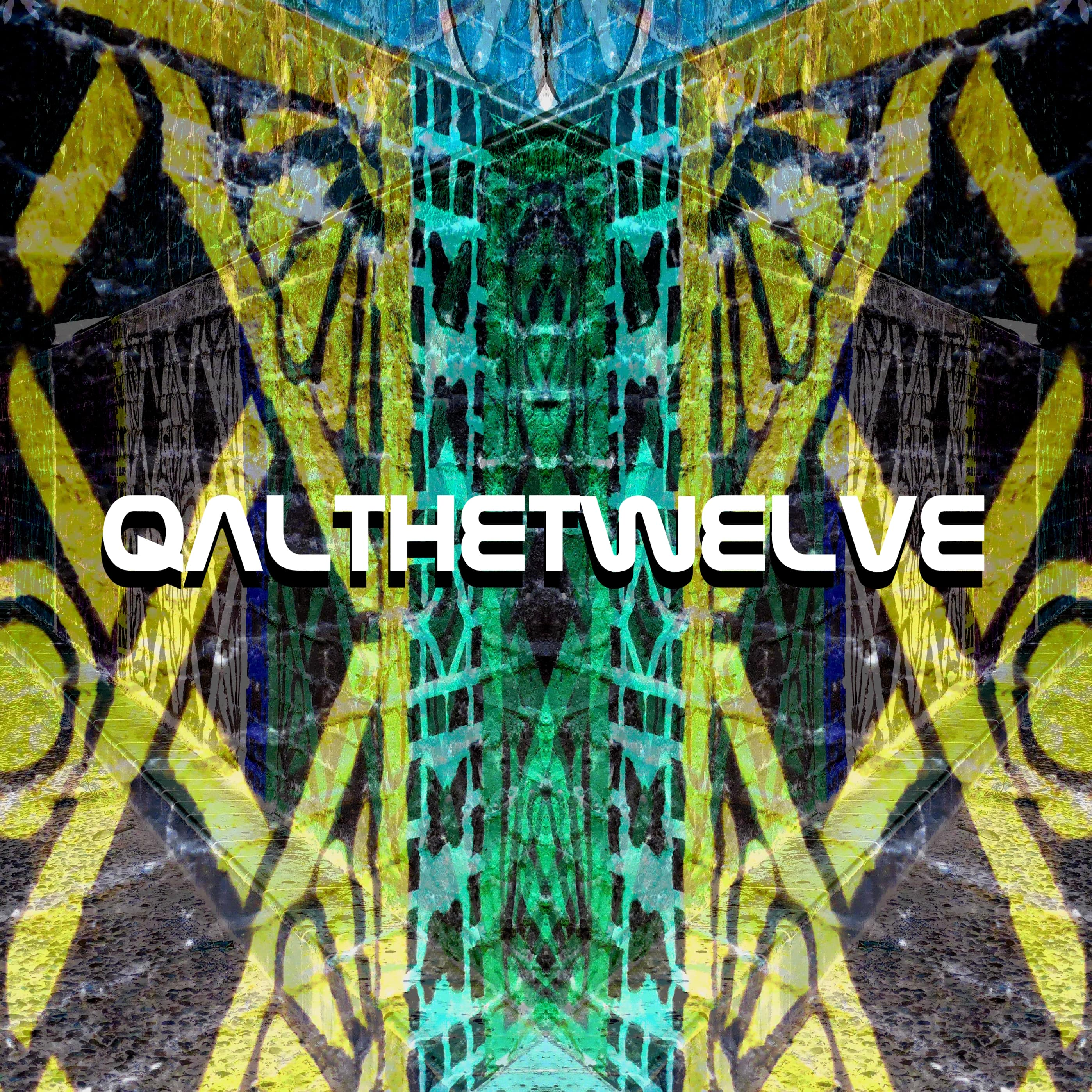Poetry Corner


Premise
Poetry has long been one of the key ways that humanity has sought to express itself and communicate the experience of the human condition in a refined form. There is poetry in nearly everything and in nearly everyone. It can give up feelings of great sorrow wrenched from the deepest recesses of a tortured soul's heart, to the ectasy of a young person engulfed in the embraces of love and hope. Therefore, I have taken the liberty of collecting here many of the poetic quotations that I have encountered over the years that I feel have provided some valuable insight into the human spirit. Some excerpts contained herein may be from well-respected authors and poets while others may be the work of lyricists of the modern day. I maintain that the latter is a valid form of expression despite its normal musical accompaniment, for that does not detract from its artistic or poetic value. - Qal

_School_-_William_Wordsworth_(1770%E2%80%931850)_-_866458_-_National_Trust.jpg)
She Dwelt Among The Untrodden Ways
She dwelt among the untrodden ways
Beside the springs of Dove,
A Maid whom there were none to praise
And very few to love:
A violet by a mossy stone
Half hidden from the eye!
—Fair as a star, when only one
Is shining in the sky.
She lived unknown, and few could know
When Lucy ceased to be;
But she is in her grave, and, oh,
The difference to me!
I Wandered Lonely as a Cloud
I wandered lonely as a cloud
That floats on high o'er vales and hills,
When all at once I saw a crowd,
A host, of golden daffodils;
Beside the lake, beneath the trees,
Fluttering and dancing in the breeze.
Continuous as the stars that shine
And twinkle on the milky way,
They stretched in never-ending line
Along the margin of a bay:
Ten thousand saw I at a glance,
Tossing their heads in sprightly dance.
The waves beside them danced; but they
Out-did the sparkling waves in glee:
A poet could not but be gay,
In such a jocund company:
I gazed—and gazed—but little thought
What wealth the show to me had brought:
For oft, when on my couch I lie
In vacant or in pensive mood,
They flash upon that inward eye
Which is the bliss of solitude;
And then my heart with pleasure fills,
And dances with the daffodils.
The Rainbow (My Heart Leaps Up)
My heart leaps up when I behold
A rainbow in the sky:
So was it when my life began;
So is it now I am a man;
So be it when I shall grow old,
Or let me die!
The Child is father of the Man;
And I could wish my days to be
Bound each to each by natural piety.
- by William Wordsworth
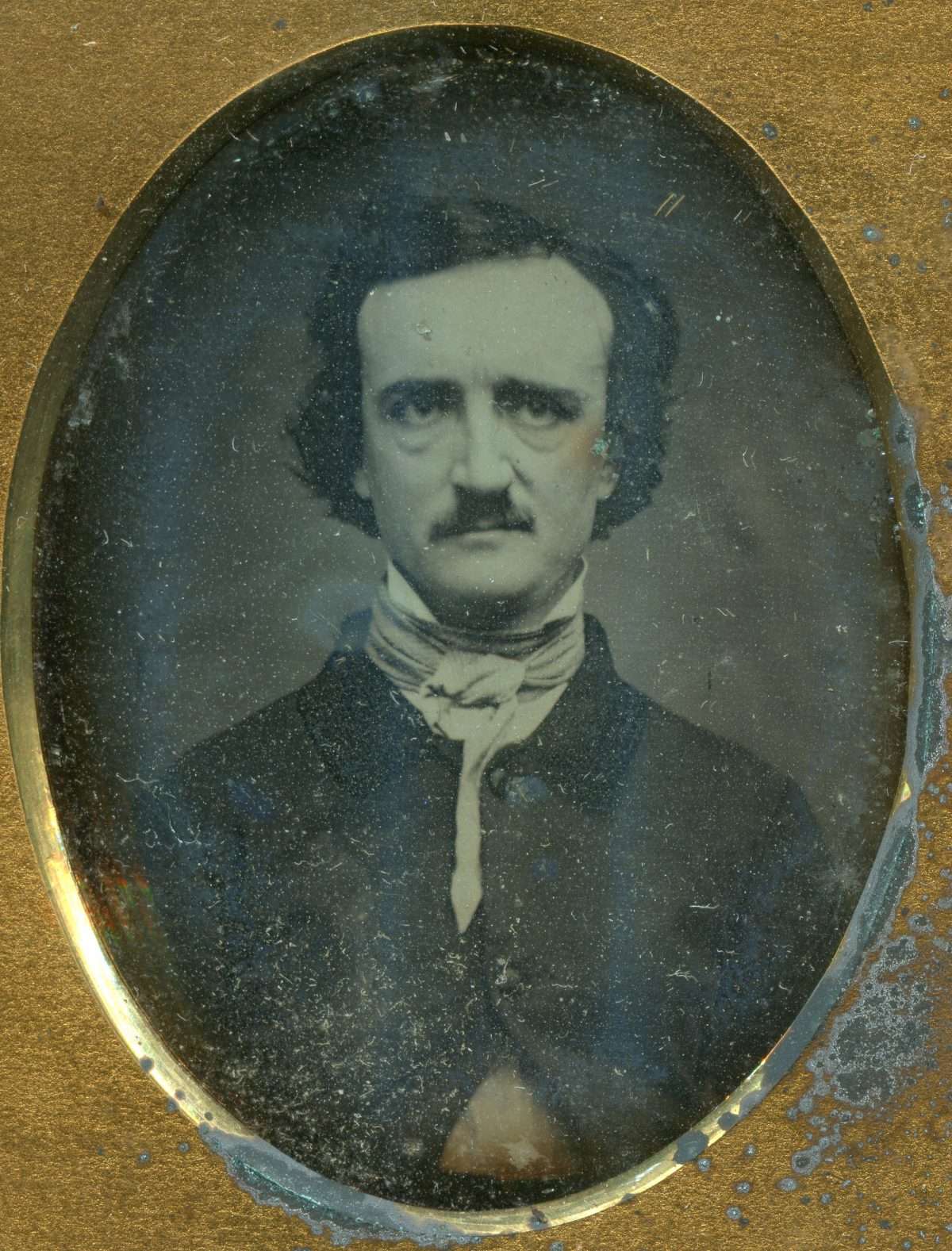
The Raven (Excerpt)
...
Open here I flung the shutter, when, with many a flirt and flutter,
In there stepped a stately Raven of the saintly days of yore;
Not the least obeisance made he; not a minute stopped or stayed he;
But, with mien of lord or lady, perched above my chamber door—
Perched upon a bust of Pallas just above my chamber door—
Perched, and sat, and nothing more.
Then this ebony bird beguiling my sad fancy into smiling,
By the grave and stern decorum of the countenance it wore,
“Though thy crest be shorn and shaven, thou,” I said, “art sure no craven,
Ghastly grim and ancient Raven wandering from the Nightly shore—
Tell me what thy lordly name is on the Night’s Plutonian shore!”
Quoth the Raven “Nevermore.”
Much I marvelled this ungainly fowl to hear discourse so plainly,
Though its answer little meaning—little relevancy bore;
For we cannot help agreeing that no living human being
Ever yet was blessed with seeing bird above his chamber door—
Bird or beast upon the sculptured bust above his chamber door,
With such name as “Nevermore.”
But the Raven, sitting lonely on the placid bust, spoke only
That one word, as if his soul in that one word he did outpour.
Nothing farther then he uttered—not a feather then he fluttered—
Till I scarcely more than muttered “Other friends have flown before—
On the morrow he will leave me, as my Hopes have flown before.”
Then the bird said “Nevermore.”
Startled at the stillness broken by reply so aptly spoken,
“Doubtless,” said I, “what it utters is its only stock and store
Caught from some unhappy master whom unmerciful Disaster
Followed fast and followed faster till his songs one burden bore—
Till the dirges of his Hope that melancholy burden bore
Of ‘Never—nevermore’.”
But the Raven still beguiling all my fancy into smiling,
Straight I wheeled a cushioned seat in front of bird, and bust and door;
Then, upon the velvet sinking, I betook myself to linking
Fancy unto fancy, thinking what this ominous bird of yore—
What this grim, ungainly, ghastly, gaunt, and ominous bird of yore
Meant in croaking “Nevermore.”
This I sat engaged in guessing, but no syllable expressing
To the fowl whose fiery eyes now burned into my bosom’s core;
This and more I sat divining, with my head at ease reclining
On the cushion’s velvet lining that the lamp-light gloated o’er,
But whose velvet-violet lining with the lamp-light gloating o’er,
She shall press, ah, nevermore!
Then, methought, the air grew denser, perfumed from an unseen censer
Swung by Seraphim whose foot-falls tinkled on the tufted floor.
“Wretch,” I cried, “thy God hath lent thee—by these angels he hath sent thee
Respite—respite and nepenthe from thy memories of Lenore;
Quaff, oh quaff this kind nepenthe and forget this lost Lenore!”
Quoth the Raven “Nevermore.”
“Prophet!” said I, “thing of evil!—prophet still, if bird or devil!—
Whether Tempter sent, or whether tempest tossed thee here ashore,
Desolate yet all undaunted, on this desert land enchanted—
On this home by Horror haunted—tell me truly, I implore—
Is there—is there balm in Gilead?—tell me—tell me, I implore!”
Quoth the Raven “Nevermore.”
“Prophet!” said I, “thing of evil!—prophet still, if bird or devil!
By that Heaven that bends above us—by that God we both adore—
Tell this soul with sorrow laden if, within the distant Aidenn,
It shall clasp a sainted maiden whom the angels name Lenore—
Clasp a rare and radiant maiden whom the angels name Lenore.”
Quoth the Raven “Nevermore.”
“Be that word our sign of parting, bird or fiend!” I shrieked, upstarting—
“Get thee back into the tempest and the Night’s Plutonian shore!
Leave no black plume as a token of that lie thy soul hath spoken!
Leave my loneliness unbroken!—quit the bust above my door!
Take thy beak from out my heart, and take thy form from off my door!”
Quoth the Raven “Nevermore.”
And the Raven, never flitting, still is sitting, still is sitting
On the pallid bust of Pallas just above my chamber door;
And his eyes have all the seeming of a demon’s that is dreaming,
And the lamp-light o’er him streaming throws his shadow on the floor;
And my soul from out that shadow that lies floating on the floor
Shall be lifted—nevermore!
- by Edgar Allan Poe
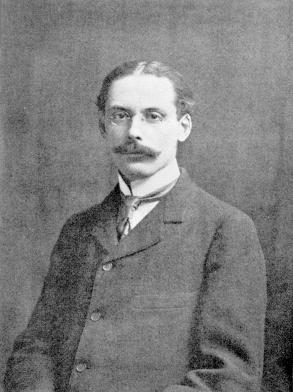
Miniver Cheevy
Miniver Cheevy, child of scorn,
Grew lean while he assailed the seasons;
He wept that he was ever born,
And he had reasons.
Miniver loved the days of old
When swords were bright and steeds were prancing;
The vision of a warrior bold
Would set him dancing.
Miniver sighed for what was not,
And dreamed, and rested from his labors;
He dreamed of Thebes and Camelot,
And Priam's neighbors.
Miniver mourned the ripe renown
That made so many a name so fragrant;
He mourned Romance, now on the town,
And Art, a vagrant.
Miniver loved the Medici,
Albeit he had never seen one;
He would have sinned incessantly
Could he have been one.
Miniver cursed the commonplace
And eyed a khaki suit with loathing;
He missed the medieval grace
Of iron clothing.
Miniver scorned the gold he sought,
But sore annoyed was he without it;
Miniver thought, and thought, and thought,
And thought about it.
Miniver Cheevy, born too late,
Scratched his head and kept on thinking;
Miniver coughed, and called it fate,
And kept on drinking.
- by Edwin Arlington Robinson

Music
Music, when soft voices die,
Vibrates in the memory—
Odours, when sweet violets sicken,
Live within the sense they quicken.
Rose leaves, when the rose is dead,
Are heaped for the belovèd's bed;
And so thy thoughts, when thou art gone,
Love itself shall slumber on.
Ozymandias
I met a traveller from an antique land,
Who said—“Two vast and trunkless legs of stone
Stand in the desert. . . . Near them, on the sand,
Half sunk a shattered visage lies, whose frown,
And wrinkled lip, and sneer of cold command,
Tell that its sculptor well those passions read
Which yet survive, stamped on these lifeless things,
The hand that mocked them, and the heart that fed;
And on the pedestal, these words appear:
My name is Ozymandias, King of Kings;
Look on my Works, ye Mighty, and despair!
Nothing beside remains. Round the decay
Of that colossal Wreck, boundless and bare
The lone and level sands stretch far away.”
To Night
Swiftly walk o'er the western wave,
Spirit of Night!
Out of the misty eastern cave,
Where, all the long and lone daylight,
Thou wovest dreams of joy and fear,
Which make thee terrible and dear,—
Swift be thy flight!
Wrap thy form in a mantle gray,
Star-inwrought!
Blind with thine hair the eyes of Day;
Kiss her until she be wearied out,
Then wander o'er city, and sea, and land,
Touching all with thine opiate wand—
Come, long-sought!
When I arose and saw the dawn,
I sighed for thee;
When light rode high, and the dew was gone,
And noon lay heavy on flower and tree,
And the weary Day turned to his rest,
Lingering like an unloved guest.
I sighed for thee.
Thy brother Death came, and cried,
Wouldst thou me?
Thy sweet child Sleep, the filmy-eyed,
Murmured like a noontide bee,
Shall I nestle near thy side?
Wouldst thou me?—And I replied,
No, not thee!
Death will come when thou art dead,
Soon, too soon—
Sleep will come when thou art fled;
Of neither would I ask the boon
I ask of thee, belovèd Night—
Swift be thine approaching flight,
Come soon, soon!
- by Percy Bysshe Shelley

Ode to a Nightingale
My heart aches, and a drowsy numbness pains
My sense, as though of hemlock I had drunk,
Or emptied some dull opiate to the drains
One minute past, and Lethe-wards had sunk:
'Tis not through envy of thy happy lot,
But being too happy in thine happiness,—
That thou, light-winged Dryad of the trees
In some melodious plot
Of beechen green, and shadows numberless,
Singest of summer in full-throated ease.
O, for a draught of vintage! that hath been
Cool'd a long age in the deep-delved earth,
Tasting of Flora and the country green,
Dance, and Provençal song, and sunburnt mirth!
O for a beaker full of the warm South,
Full of the true, the blushful Hippocrene,
With beaded bubbles winking at the brim,
And purple-stained mouth;
That I might drink, and leave the world unseen,
And with thee fade away into the forest dim:
Fade far away, dissolve, and quite forget
What thou among the leaves hast never known,
The weariness, the fever, and the fret
Here, where men sit and hear each other groan;
Where palsy shakes a few, sad, last gray hairs,
Where youth grows pale, and spectre-thin, and dies;
Where but to think is to be full of sorrow
And leaden-eyed despairs,
Where Beauty cannot keep her lustrous eyes,
Or new Love pine at them beyond to-morrow.
Away! away! for I will fly to thee,
Not charioted by Bacchus and his pards,
But on the viewless wings of Poesy,
Though the dull brain perplexes and retards:
Already with thee! tender is the night,
And haply the Queen-Moon is on her throne,
Cluster'd around by all her starry Fays;
But here there is no light,
Save what from heaven is with the breezes blown
Through verdurous glooms and winding mossy ways.
I cannot see what flowers are at my feet,
Nor what soft incense hangs upon the boughs,
But, in embalmed darkness, guess each sweet
Wherewith the seasonable month endows
The grass, the thicket, and the fruit-tree wild;
White hawthorn, and the pastoral eglantine;
Fast fading violets cover'd up in leaves;
And mid-May's eldest child,
The coming musk-rose, full of dewy wine,
The murmurous haunt of flies on summer eves.
Darkling I listen; and, for many a time
I have been half in love with easeful Death,
Call'd him soft names in many a mused rhyme,
To take into the air my quiet breath;
Now more than ever seems it rich to die,
To cease upon the midnight with no pain,
While thou art pouring forth thy soul abroad
In such an ecstasy!
Still wouldst thou sing, and I have ears in vain—
To thy high requiem become a sod.
Thou wast not born for death, immortal Bird!
No hungry generations tread thee down;
The voice I hear this passing night was heard
In ancient days by emperor and clown:
Perhaps the self-same song that found a path
Through the sad heart of Ruth, when, sick for home,
She stood in tears amid the alien corn;
The same that oft-times hath
Charm'd magic casements, opening on the foam
Of perilous seas, in faery lands forlorn.
Forlorn! the very word is like a bell
To toll me back from thee to my sole self!
Adieu! the fancy cannot cheat so well
As she is fam'd to do, deceiving elf.
Adieu! adieu! thy plaintive anthem fades
Past the near meadows, over the still stream,
Up the hill-side; and now 'tis buried deep
In the next valley-glades:
Was it a vision, or a waking dream?
Fled is that music:—Do I wake or sleep?
- by John Keats

Sonnet CXVI
Let me not to the marriage of true minds
Admit impediments; love is not love
Which alters when it alteration finds,
Or bends with the remover to remove.
O no, it is an ever-fixèd mark
That looks on tempests and is never shaken;
It is the star to every wand'ring bark
Whose worth's unknown, although his height be taken.
Love's not time's fool, though rosy lips and cheeks
Within his bending sickle's compass come.
Love alters not with his brief hours and weeks,
But bears it out even to the edge of doom:
If this be error and upon me proved,
I never writ, nor no man ever loved.
Hamlet's Soliloquy
To be, or not to be, that is the question:
Whether 'tis nobler in the mind to suffer
The slings and arrows of outrageous fortune,
Or to take arms against a sea of troubles
And by opposing end them. To die—to sleep,
No more; and by a sleep to say we end
The heart-ache and the thousand natural shocks
That flesh is heir to: 'tis a consummation
Devoutly to be wish'd. To die, to sleep;
To sleep, perchance to dream—ay, there's the rub:
For in that sleep of death what dreams may come,
When we have shuffled off this mortal coil,
Must give us pause—there's the respect
That makes calamity of so long life.
For who would bear the whips and scorns of time,
Th'oppressor's wrong, the proud man's contumely,
The pangs of dispriz'd love, the law's delay,
The insolence of office, and the spurns
That patient merit of th'unworthy takes,
When he himself might his quietus make
With a bare bodkin? Who would fardels bear,
To grunt and sweat under a weary life,
But that the dread of something after death,
The undiscovere'd country, from whose bourn
No traveller returns, puzzles the will,
And makes us rather bear those ills we have
Than fly to others that we know not of?
Thus conscience doth make cowards of us all,
And thus the native hue of resolution
Is sicklied o'er with the pale cast of thought,
And enterprises of great pith and moment
With this regard their currents turn awry
And lose the name of action.
- by William Shakespeare
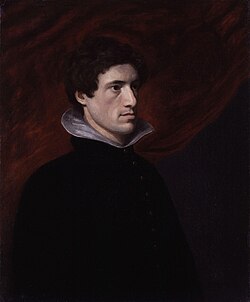
On an Infant Dying as Soon as Born
I saw where in the shroud did lurk
A curious frame of Nature's work.
A flow'ret crushed in the bud,
A nameless piece of Babyhood,
Was in a cradle-coffin lying;
Extinct, with scarce the sense of dying;
So soon to exchange the imprisoning womb
For darker closets of the tomb!
She did but ope an eye, and put
A clear beam forth, then strait up shut
For the long dark: ne'er more to see
Through glasses of mortality.
Riddle of destiny, who can show
What thy short visit meant, or knowv
What thy errand here below?
Shall we say, that Nature blind
Check'd her hand, and changed her mind,
Just when she had exactly wrought
A finish'd pattern without fault?
Could she flag, or could she tire,
Or lack'd she the Promethean fire
(With her nine moons' long workings sicken'd)
That should thy little limbs have quicken'd?
Limbs so firm, they seem'd to assure
Life of health, and days mature:
Woman's self in miniature!
Limbs so fair, they might supply
(Themselves now but cold imagery)
The sculptor to make Beauty by.
Or did the stern-eyed Fate descry,
That babe, or mother, one must die;
So in mercy left the stock,
And cut the branch; to save the shock
Of young years widow'd; and the pain,
When Single State comes back again
To the lone man who, 'reft of wife,
Thenceforward drags a maimed life?
The economy of Heaven is dark;
And wisest clerks have miss'd the mark,
Why Human Buds, like this, should fall,
More brief than fly ephemeral,
That has his day; while shrivel'd crones
Stiffen with age to stocks and stones;
And crabbed use the conscience sears
In sinners of an hundred years.
Mother's prattle, mother's kiss,
Baby fond, thou ne'er wilt miss.
Rites, which custom does impose,
Silver bells and baby clothes;
Coral redder than those lips,
Which pale death did late eclipse;
Music framed for infants' glee,
Whistle never tuned for thee;
Though thou want'st not, thou shalt have them,
Loving hearts were they which gave them.
Let not one be missing; nurse,
See them laid upon the hearse
Of infant slain by doom perverse.
Why should kings and nobles have
Pictured trophies to their grave;
And we, churls, to thee deny
Thy pretty toys with thee to lie,
A more harmless vanity?
- by Charles Lamb
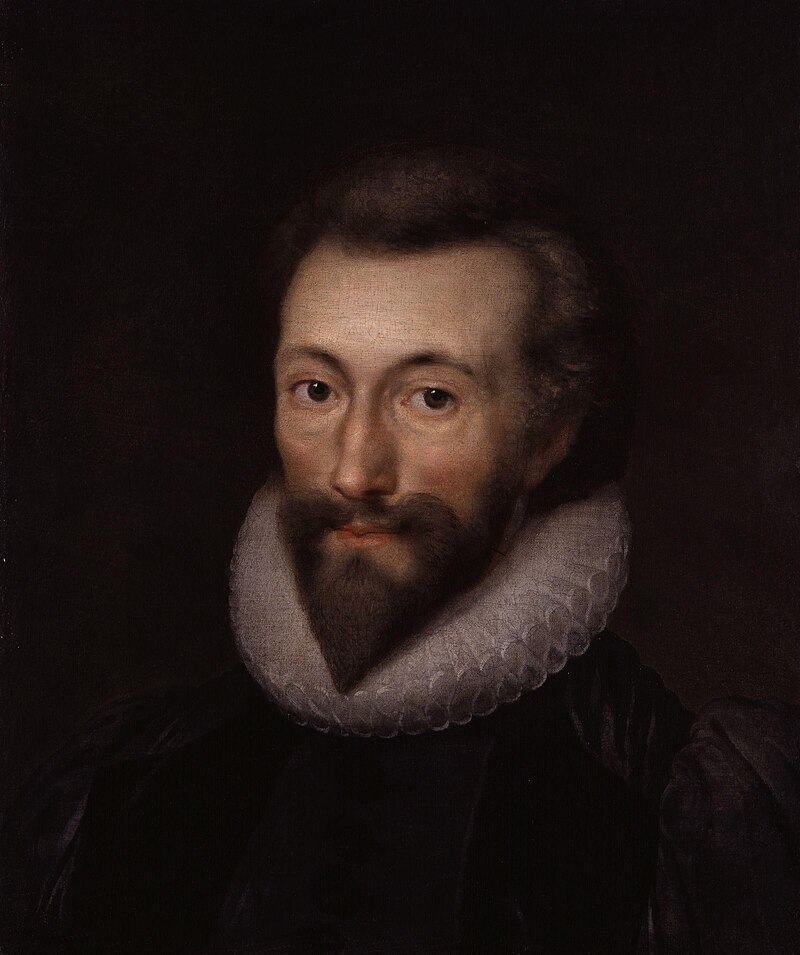
Death
Death, be not proud, though some have called thee
Mighty and dreadful, for thou art not so;
For those whom thou think'st thou dost overthrow
Die not, poor Death, nor yet canst thou kill me.
From rest and sleep, which but thy pictures be,
Much pleasure; then from thee much more must flow,
And soonest our best men with thee do go,
Rest of their bones, and soul's delivery.
Thou art slave to fate, chance, kings, and desperate men,
And dost with poison, war, and sickness dwell,
And poppy or charms can make us sleep as well
And better than thy stroke; why swell'st thou then?
One short sleep past, we wake eternally
And death shall be no more; Death, thou shalt die.
- by John Donne
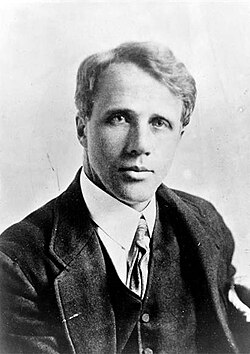
After Apple Picking
My long two-pointed ladder's sticking through a tree
Toward heaven still,
And there's a barrel that I didn't fill
Beside it, and there may be two or three
Apples I didn't pick upon some bough.
But I am done with apple-picking now.
Essence of winter sleep is on the night,
The scent of apples: I am drowsing off.
I cannot rub the strangeness from my sight
I got from looking through a pane of glass
I skimmed this morning from the drinking trough
And held against the world of hoary grass.
It melted, and I let it fall and break.
But I was well
Upon my way to sleep before it fell,
And I could tell
What form my dreaming was about to take.
Magnified apples appear and disappear,
Stem end and blossom end,
And every fleck of russet showing clear.
My instep arch not only keeps the ache,
It keeps the pressure of a ladder-round.
I feel the ladder sway as the boughs bend.
And I keep hearing from the cellar bin
The rumbling sound
Of load on load of apples coming in.
For I have had too much
Of apple-picking: I am overtired
Of the great harvest I myself desired.
There were ten thousand thousand fruit to touch,
Cherish in hand, lift down, and not let fall.
For all
That struck the earth,
No matter if not bruised or spiked with stubble,
Went surely to the cider-apple heap
As of no worth.
One can see what will trouble
This sleep of mine, whatever sleep it is.
Were he not gone,
The woodchuck could say whether it's like his
Long sleep, as I describe its coming on,
Or just some human sleep.
- by Poet

Divine Image
To Mercy, Pity, Peace, and Love
All pray in their distress;
And to these virtues of delight
Return their thankfulness.
For Mercy, Pity, Peace, and Love
Is God, our father dear,
And Mercy, Pity, Peace, and Love
Is Man, his child and care.
For Mercy has a human heart,
Pity a human face,
And Love, the human form divine,
And Peace, the human dress.
Then every man, of every clime,
That prays in his distress,
Prays to the human form divine,
Love, Mercy, Pity, Peace.
And all must love the human form,
In heathen, Turk, or Jew;
Where Mercy, Love, and Pity dwell
There God is dwelling too.
- by William Blake

Jabberwocky
'Twas brillig, and the slithy toves
Did gyre and gimble in the wabe;
All mimsy were the borogoves,
And the mome raths outgrabe.
"Beware the Jabberwock, my son!v
The jaws that bite, the claws that catch!
Beware the Jubjub bird, and shun
The frumious Bandersnatch!"
He took his vorpal sword in hand:
Long time the manxome foe he sought—
So rested he by the Tumtum tree,
And stood awhile in thought.
And as in uffish thought he stood,
The Jabberwock, with eyes of flame,
Came whiffling through the tulgey wood,
And burbled as it came!
One, two! One, two! And through and through
The vorpal blade went snicker-snack!
He left it dead, and with its head
He went galumphing back.
"And hast thou slain the Jabberwock?
Come to my arms, my beamish boy!
O frabjous day! Callooh! Callay!"
He chortled in his joy.
'Twas brillig, and the slithy toves
Did gyre and gimble in the wabe;
All mimsy were the borogoves,
And the mome raths outgrabe.
- by Lewis Carroll
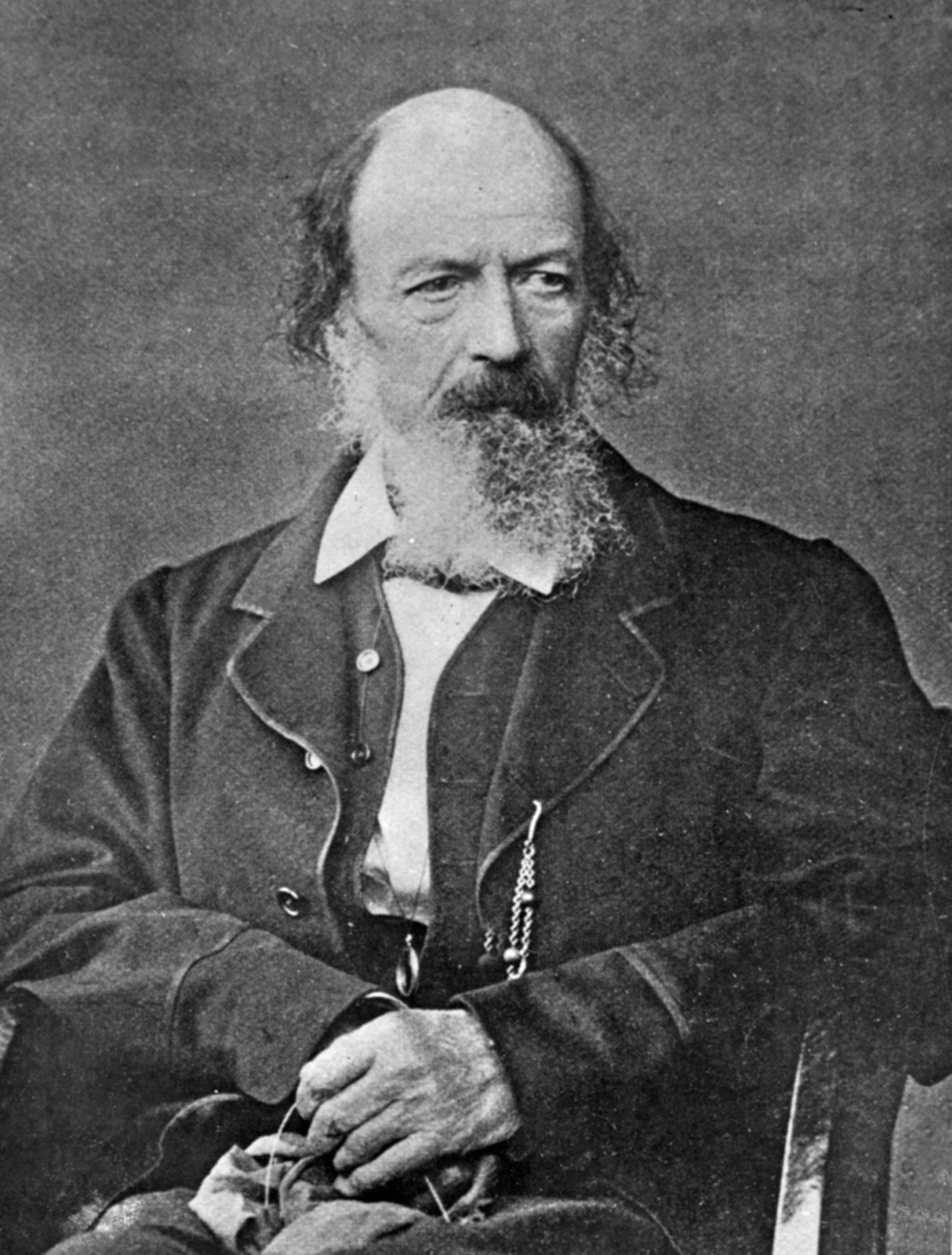
The Charge of the Light Brigade
I
Half a league, half a league,
Half a league onward,
All in the valley of Death
Rode the six hundred.
“Forward, the Light Brigade!
Charge for the guns!” he said.
Into the valley of Death
Rode the six hundred.
II
“Forward, the Light Brigade!”
Was there a man dismayed?
Not though the soldier knew
Someone had blundered.
Theirs not to make reply,
Theirs not to reason why,
Theirs but to do and die.
Into the valley of Death
Rode the six hundred.
III
Cannon to right of them,
Cannon to left of them,
Cannon in front of them
Volleyed and thundered;
Stormed at with shot and shell,
Boldly they rode and well,
Into the jaws of Death,
Into the mouth of hell
Rode the six hundred.
IV
Flashed all their sabres bare,
Flashed as they turned in air
Sabring the gunners there,
Charging an army, while
All the world wondered.
Plunged in the battery-smoke
Right through the line they broke;
Cossack and Russian
Reeled from the sabre stroke
Shattered and sundered.
Then they rode back, but not
Not the six hundred.
V
Cannon to right of them,
Cannon to left of them,
Cannon behind them
Volleyed and thundered;
Stormed at with shot and shell,
While horse and hero fell.
They that had fought so well
Came through the jaws of Death,
Back from the mouth of hell,
All that was left of them,
Left of six hundred.
VI
When can their glory fade?
O the wild charge they made!
All the world wondered.
Honour the charge they made!
Honour the Light Brigade,
Noble six hundred!
- by Alfred Lord Tennyson
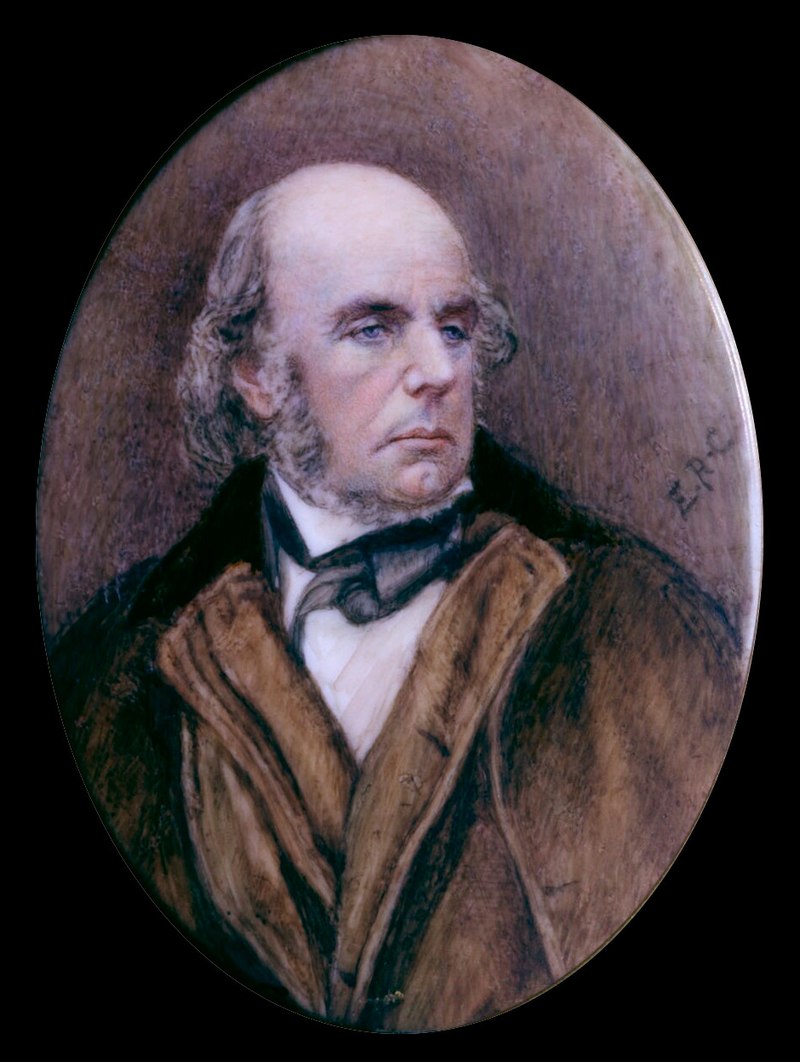
Rubaiyat of Omar Khayyam (Excerpt)
...
Oh, come with old Khayyám, and leave the Wise
To talk; one thing is certain, that Life flies;
One thing is certain, and the Rest is Lies;
The Flower that once blown for ever dies.
- by Edward FitzGerald
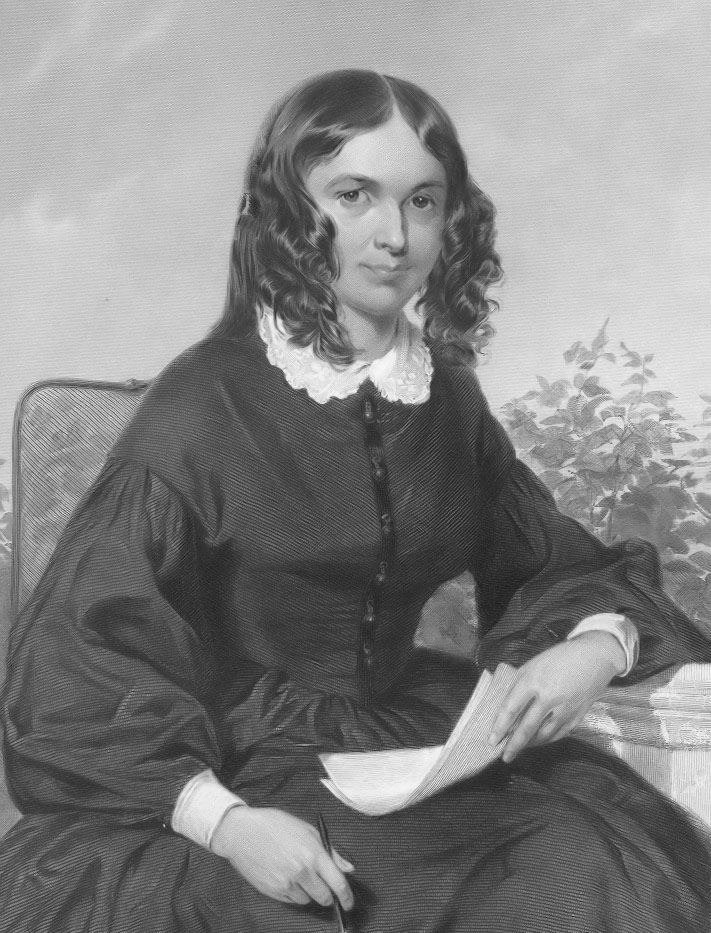
Earth (Excerpt)
...
How beautiful is earth! my starry thoughts
Look down on it from their unearthly sphere,
And sing symphonious—Beautiful is earth!
The lights and shadows of her myriad hills;
The branching greenness of her myriad woods;
Her sky-affecting rocks; her zoning sea;
Her rushing, gleaming cataracts; her streams
That race below, the winged clouds on high;
Her pleasantness of vale and meadow!———
- by Elizabeth Barrett Browning

Wasted
It's 2:45, the baby takes his first breath,
The mother never knew he only had a few left.
And the father gets a call in the middle of the night,
His breath gets short and chest gets tight.
But he's sixteen and he's driving too fast,
Takes a turn to the left it would be his last.
Nobody knows what happens if he turns to the right.
Nobody in the car would have died that night..
But he's thirty-two and invincible!
The cancer he had it was visceral..
He never saw it coming, thought he had his whole life.
Sick in the morning and he died in the night!
[Refrain]
We're all so,
We're on the run.
We're all, we're all, oh!
We're wasted, no, no, no
We're all wasted!
We're wasted, no, no
We're all wasted!
Seven years old, got his bat in his hand,
He's looking for his father and he doesn't understand,
Cause dad's too busy, got some deals on the way.
His son sits alone as the children play.
And he's eighteen, couldn't wait to move out.
His parents wonder what all the rush is about.
They never bothered with his dreams, only thinking of their.s
Wonders why he doesn't call or why he doesn't care..
But he's thirty-two and invincible.
With everything he his based on principle.
He never had a truly happy moment in his life.
He didn't want the kids and he didn't want his wife!
[Refrain]
We're all so,
We're on the run.
We're all, we're all, oh!
We're wasted, no, no, no
We're all wasted!
We're wasted, no, no
We're all wasted!
Twenty-three now, got his life in his hands
He's looking all around and he doesn't understand
Cause life's too busy, things get in the way
We all feel alone every single day.
And I'm eighteen, couldn't wait to move out
It's been five years and now I'm starting to doubt...
Whether all my dreams are just aimless stares,
Looking off to some place isn't there.
When I'm thirty-two will I be miserable?
With everything around based on principle?
Will I have a clue? Oh, wouldn't it be nice
To never be alone in this wasted life
- by Will Pugh of Cartel
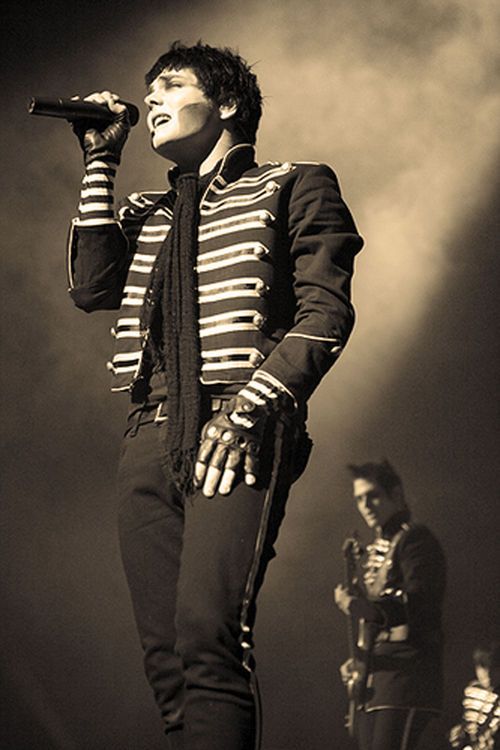
Heaven Help Us
Hear the sound
The angels come screaming
Down your voice
I hear you've been bleeding
Make your choice, they say you've been pleading
"Someone, save us!"
Heaven help us now
Come crashing down
And hear the sound
As you're falling down and
Out this old hotel
But I can't tell if I've been breathing or sleeping, or screaming, or waiting
For the man to call, and maybe all of the above
'Cause mostly, I've been sprawled on these cathedral steps
While spitting out the blood and screaming
"Someone, save us!"
Heaven help us now
Come crashing down
We'll hear the sound
As you're falling down
And will you pray for me?
Or make a saint of me?
And will you lay for me?
Or make a saint of me?
'Cause I'll give you all the nails you need
Cover me in gasoline
Wipe away those tears of blood again
And the punchline to the joke is asking
"Someone, save us!"
Heaven help us now
Come crashing down
We'll hear the sound
As you fall
And would you pray for me?
You don't know a thing about my sins
How the misery begins
Or make a saint of me?
So I'm burning, I'm burning
And will you lay for me
You don't know a thing about my sins
How the misery begins
Or make a saint! Oh You don't know
So I'm burning, I'm burning again
'Cause I'll give you all the nails you need
Cover me in gasoline again
- by Gerard Way of My Chemical Romance

Tears
Tears! tears! tears!
In the night, in solitude, tears,
On the white shore dripping, dripping, suck'd in by the sand,
Tears, not a star shining, all dark and desolate,
Moist tears from the eyes of a muffled head;
O who is that ghost? that form in the dark, with tears?
What shapeless lump is that, bent, crouch'd there on the sand?
Streaming tears, sobbing tears, throes, choked with wild cries;
O storm, embodied, rising, careering with swift steps along the
beach!
O wild and dismal night storm, with wind—O belching and des-
perate!
O shade so sedate and decorous by day, with calm countenance
and regulated pace,
But away at night as you fly, none looking—O then the unloosen'd
ocean,
Of tears! tears! tears!
On the Beach at Night Alone
On the beach at night alone,
As the old mother sways her to and fro singing her husky song,
As I watch the bright stars shining, I think a thought of the clef of the
universes and of the future.
A vast similitude interlocks all,
All spheres, grown, ungrown, small, large, suns, moons, planets,
All distances of place however wide,
All distances of time, all inanimate forms,
All souls, all living bodies though they be ever so different, or in different
worlds,
All gaseous, watery, vegetable, mineral processes, the fishes, the brutes,
All nations, colors, barbarisms, civilizations, languages,
All identities that have existed or may exist on this globe, or any globe,
All lives and deaths, all of the past, present, future,
This vast similitude spans them, and always has spann’d,
And shall forever span them and compactly hold and enclose them.
When I Heard the Learn'd Astronomer
When I heard the learn’d astronomer,
When the proofs, the figures, were ranged in columns before me,
When I was shown the charts and diagrams, to add, divide, and measure
them,
When I sitting heard the astronomer where he lectured with much applause
in the lecture-room,
How soon unaccountable I became tired and sick,
Till rising and gliding out I wander’d off by myself,
In the mystical moist night-air, and from time to time,
Look’d up in perfect silence at the stars.
As the Time Draws Nigh
As the time draws nigh, glooming, a cloud,
A dread beyond, of I know not what, darkens me.
I shall go forth,
I shall traverse The States awhile—but I cannot tell whither or how
long;
Perhaps soon, some day or night while I am singing, my voice will
suddenly cease.
O book, O chants! must all then amount to but this?
Must we barely arrive at this beginning of us?… And yet it is
enough, O soul!
O soul! we have positively appear'd—that is enough
- by Walt Whitman
